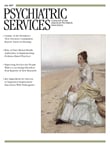Unstrange," a neologism coined by the poet E. E. Cummings, is very appropriately used in the title of this book. As Roy Richard Grinker states in his introduction, "the process of understanding autism itself parallels the work that anthropologists do, since the minds of people with autism are sometimes as hard to understand as foreign cultures." Grinker is a professor of anthropology at George Washington University and is interested in the intersection between culture and illness. He is also the father of a daughter with autism.
In this beautifully written, captivating book, Grinker looks at autism from a cultural viewpoint and observes how culture dictates the way we view autism. He examines the historical events leading to the current rise in the prevalence of autism and critically inspects the available evidence. "Is there really more autism, or are we just seeing it more?" he asks. Grinker argues for the latter.
In the book's first part, Grinker reviews the significant changes that psychiatry has undergone leading to the "tipping point" in this "epidemic," from Leo Kanner's first description of autism as a biological syndrome rather than a symptom to Bruno Bettelheim's blaming mothers in The Empty Fortress. Psychoanalysis was gradually replaced with the DSM 's attempts at standardized psychiatric diagnosis. Autism was not included in the DSM-II as a distinct disorder, whereas DSM-III, called autism a "pervasive developmental disorder" and no longer a psychosis.
Gradually, we arrived at where we are at today, with broad diagnostic criteria including pervasive developmental disorder not otherwise stated and Asperger's disorder, which now makes up as many as 75 percent of new cases in the spectrum. Grinker criticizes the comparison between prevalence studies in the past and present, arguing that the diagnostic criteria have changed so much that this comparison is not reliable: "Diagnosing a mental disorder in a child is like describing a moving target." Epidemiological methods used today are much more aggressive, and public awareness as well as earlier detection is leading to increased numbers.
In the book's second part, we are introduced to captivating and uplifting personal stories of families around the world living with autism. From the suburbs of Washington, D.C., to France, India, South Africa, and South Korea, these tales shed light not only on this illness but on humankind. The parents of children with autism, no matter how remote and impoverished, seek a diagnosis and treatment for their children and are helping autism in "becoming visible." They fight for awareness and better education, form advocacy groups, and change beliefs. As Grinker says in the introduction to his book, "We should stop, step back and take a closer look at our fears about autism."
Unstrange Minds is a well-written, carefully presented work of scientific research, looking at the cultural implications of autism. It manages to address key points about autism today, both internationally and very personally. I believe that anyone touched by autism, whether physician, psychologist, teacher, or parent, should read this book.

